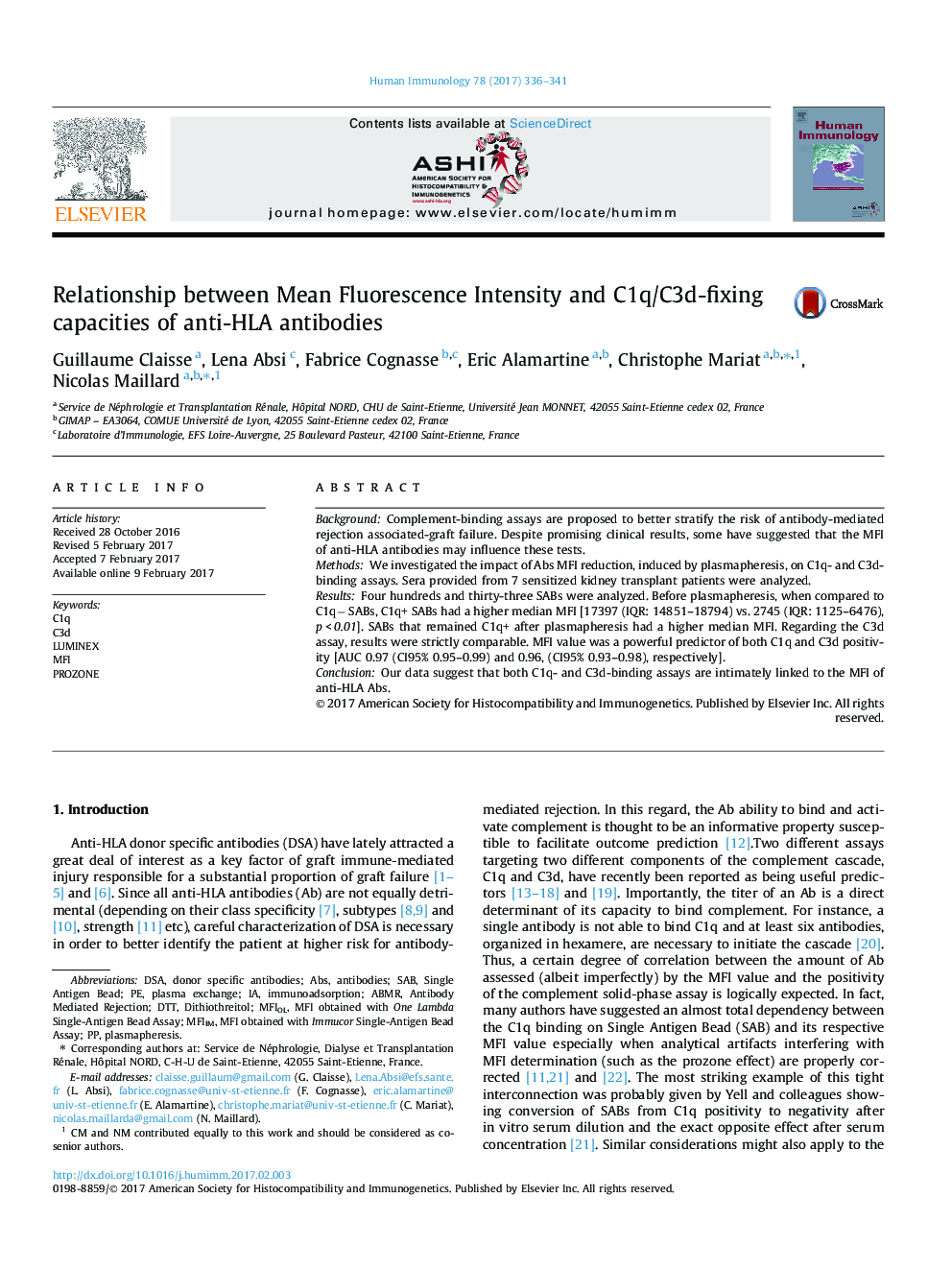| Article ID | Journal | Published Year | Pages | File Type |
|---|---|---|---|---|
| 5666309 | Human Immunology | 2017 | 6 Pages |
BackgroundComplement-binding assays are proposed to better stratify the risk of antibody-mediated rejection associated-graft failure. Despite promising clinical results, some have suggested that the MFI of anti-HLA antibodies may influence these tests.MethodsWe investigated the impact of Abs MFI reduction, induced by plasmapheresis, on C1q- and C3d-binding assays. Sera provided from 7 sensitized kidney transplant patients were analyzed.ResultsFour hundreds and thirty-three SABs were analyzed. Before plasmapheresis, when compared to C1qâ SABs, C1q+ SABs had a higher median MFI [17397 (IQR: 14851-18794) vs. 2745 (IQR: 1125-6476), p < 0.01]. SABs that remained C1q+ after plasmapheresis had a higher median MFI. Regarding the C3d assay, results were strictly comparable. MFI value was a powerful predictor of both C1q and C3d positivity [AUC 0.97 (CI95% 0.95-0.99) and 0.96, (CI95% 0.93-0.98), respectively].ConclusionOur data suggest that both C1q- and C3d-binding assays are intimately linked to the MFI of anti-HLA Abs.
